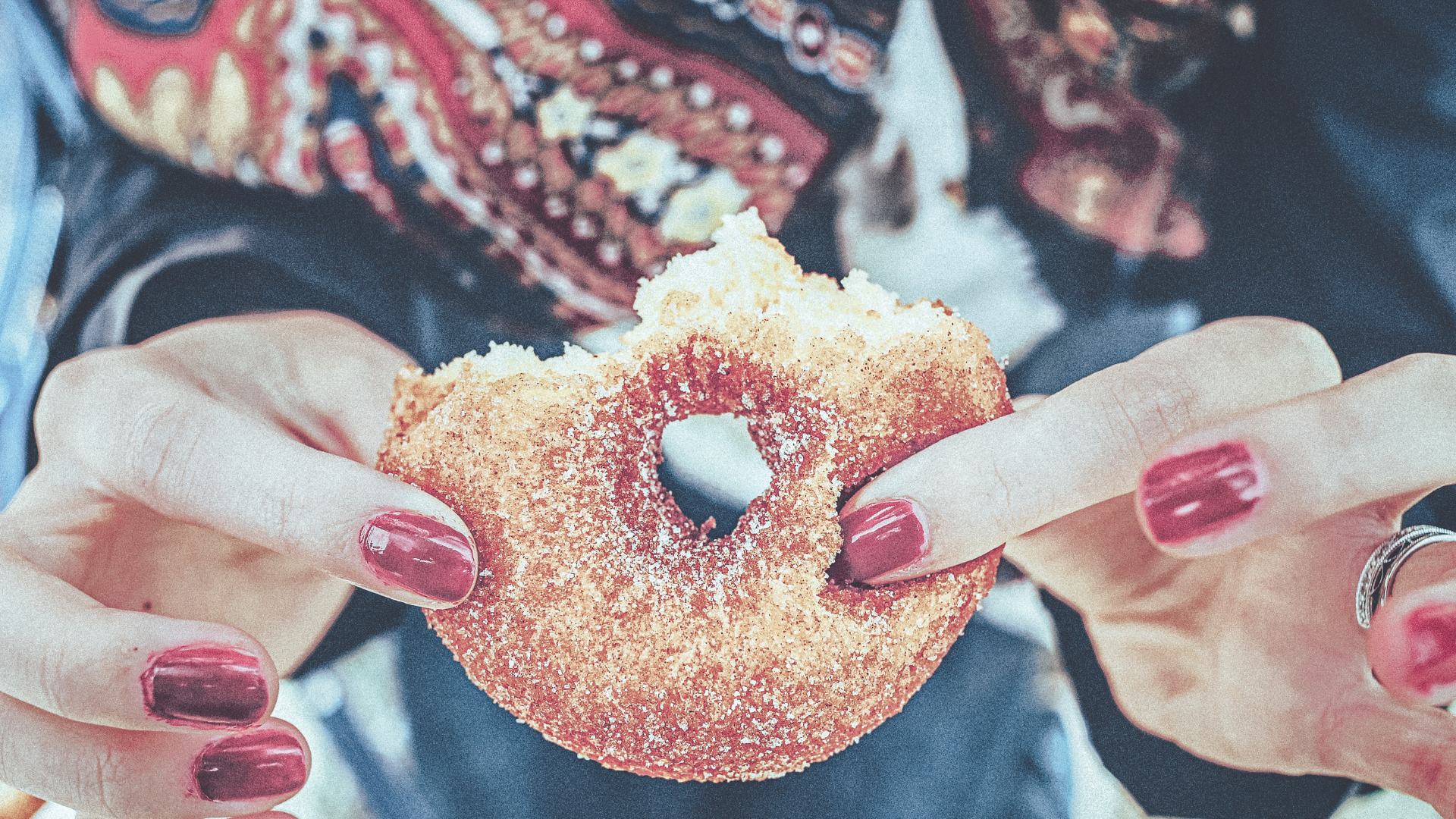Lose Weight Permanently
You’ve spent excessive amounts of time, energy, and resources attempting to eat healthy and lose weight.
Needless to say, you’re spent. You’re ready to move on from that approach. I’m here to teach you how.
In this hour masterclass, you’ll learn what’s preventing you from creating the weight loss you want, along with what’s necessary to solve for healthy eating and weight loss for the very last time.
FREE MASTERCLASS
without tracking and planning
Oct 9
The Two Types of Food Guilt

There’s no question that diet culture has become extremely prevalent in our society.
Where restrictive eating and strict rules around food have become the norm.
This, in turn, has caused us to maintain a toxic relationship with food and our bodies.
We no longer see eating as a way to fuel our bodies and provide nourishment.
Food is viewed as a means to an end.
Eating healthy for many women has one single purpose: to lose the weight.
This mentality has perpetuated massive food guilt in our culture.
Where Food Guilt Comes From
To feel guilty after eating certain foods isn’t natural.
It’s something we’ve been conditioned to feel after eating something that’s deemed “unhealthy”.
Under normal circumstances, a human being would only feel a sense of guilt after doing something morally wrong.
Such as lying, stealing, cheating, etc.
What’s fascinating, is we’ve attached those same feelings of guilt to what we eat.
We’ve even gone so far as to attach certain verbiage towards “unhealthy” foods.
It’s not uncommon for us to say that foods are sinful, tempting, etc.
We’ll feel the same remorse after we indulge in a piece of chocolate cake as we would if we stole candy from a small child.
This makes no sense.
But, it’s the way diet culture has trained us to think.
We’ve made eating food a constant moral dilemma.
Where foods are described as either “good” or “bad”.
And when we eat the bad foods, we break the rules that restrictive diet culture has set for us.
Think about it.
What foods has diet culture convinced you are sinful – or morally wrong to eat?
The Two Types of Food Guilt
What many don’t realize is that there are two types of food guilt we can experience.
The first, is from a dieter’s perspective.
Which is what we just previously described.
When dieters fall “off track” and don’t stick to the restrictive food rules of a diet, they feel remorse.
They view this as a failure, feel guilt, and make this mean something negative about themselves.
On the other hand, food guilt can also be felt from non-dieters as well.
You can have a woman who has never dieted in her life.
She follows a seemingly effortless healthy lifestyle that most women would kill for.
However, this woman actually shames food that isn’t deemed as being nutritionally healthy.
She prides herself on eating the foods that are “good for her”.
Which means, she still has a toxic relationship with food.
Since she views certain foods as positive or negative.
This is a sneaky form of food guilt that so many are unaware of.
Which proves how normal this guilt has become in our culture today.
Getting Rid of Food Guilt
The truth is, naming foods as either good or bad gives most people a sense of security.
It’s the same reason women flock to diets to fix their food problems.
They don’t trust themselves to create the relationship with food they want.
In their minds, they don’t believe they have the self-control or willpower to eat healthy while also indulging in foods they love.
Because of this distrust towards themselves, they feel comfort in knowing that “good foods” and “bad foods” have been chosen for them.
Can you relate?
If so, no worries.
This thinking is simply a product of the diet culture most of us have been raised in.
But, now is the time to take your relationship with food to a deeper level.
Where you can trust yourself and your food decisions to have a relationship with your body that you want.
You don’t need food guilt or restrictive rules to do this for you.
Stop the black-and-white thinking.
No labeling foods as “good” or “bad”.
Stop using language such as “on-track” or “off-track”.
Eating should be viewed as a pleasurable activity.
Whether you’re eating that piece of chocolate cake at your wedding.
Or choosing to eat that kale salad since that’s what your body needs.
You can trust yourself to create this relationship.
This is how you create an effortless, loving relationship with food.
Ready to take this work to the deepest level?
own your
EATING HABITS
The Program
The exclusive coaching program for high-achieving women who want to eat naturally healthy – without restriction, effort, or willpower – so they can better focus on the things in life that matter to them most.
Kat Rentas, Healthy Eating Coach
Hey there! I'm Kat Rentas. I’m a certified life and health coach for women who believes that eating healthy should feel simple and sustainable. I teach hundreds of high-performing women to change their eating habits without the overwhelm. Want to change your eating habits in a way that is aligned with your needs, preferences, and goals? You’re in the right place. You can read my full story here.